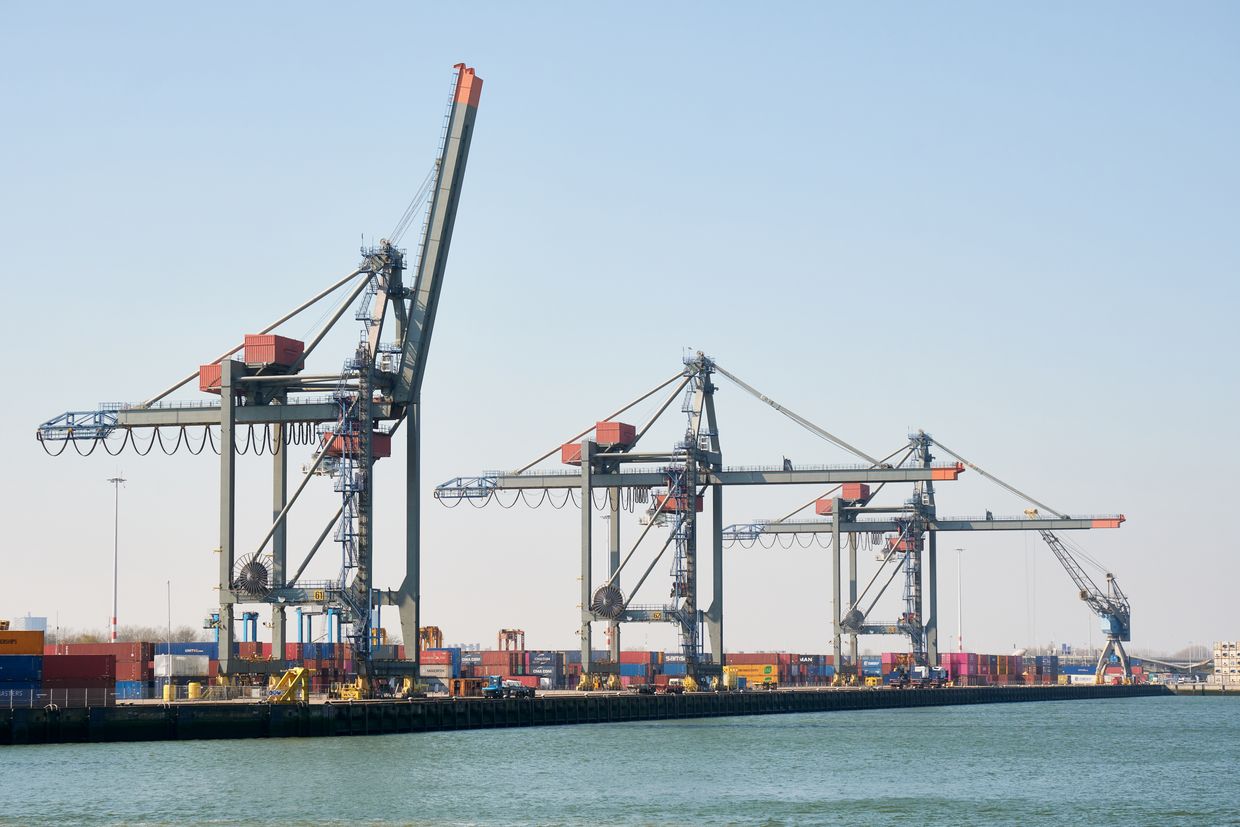
In anticipation of a possible conflict with Russia, the port of Rotterdam has begun reserving area for NATO ships carrying army cargo and is mapping out logistics routes for weapons transfers, the Monetary Instances reported on July 8.
The choice comes as NATO allies more and more warn of the chance of a large-scale conflict with Russia inside 5 years. Rotterdam has beforehand dealt with weapons shipments, however this marks the primary time that it’ll designate a particular berth for army use.
A part of the container terminal might be repurposed to make sure the secure switch of ammunition and different tools between vessels. Navy provide logistics might be coordinated with the port of Antwerp in neighboring Belgium.
"We see one another much less and fewer as rivals," Boudewijn Siemons, Chief Government of the Port of Rotterdam Authority, stated, referring to the port of Antwerp.
"If giant volumes of army items must be shipped, we'd look to Antwerp or different ports to take over some capability and the opposite manner round."
Join our community Support independent journalism in Ukraine. Join us in this fight. Support Us 
Siemons added that not all terminals are geared up to deal with military-grade cargo, making the logistical coordination essential, notably for shipments from the U.S., U.Ok., and Canada.
In Could, the Dutch Protection Ministry confirmed that area could be allotted for army provides at NATO's request. The transfer is a part of broader efforts by European allies to scale back dependence on the U.S. for protection logistics.
Russia's army spending has surged amid its full-scale invasion of Ukraine. In response to the Worldwide Institute for Strategic Research, Moscow's 2024 protection funds rose by 42% in actual phrases, reaching $462 billion, surpassing the mixed whole of all European nations.
NATO Secretary Normal Mark Rutte stated on July 5 {that a} Chinese language army transfer towards Taiwan might immediate Beijing to encourage Russia to open a second entrance towards NATO states.
Rutte has repeatedly warned that Russia might rebuild its army capabilities quick sufficient to pose a direct risk to NATO territory, urging allied governments to behave swiftly and decisively.
 The Kyiv IndependentLiliane Bivings
The Kyiv IndependentLiliane Bivings
